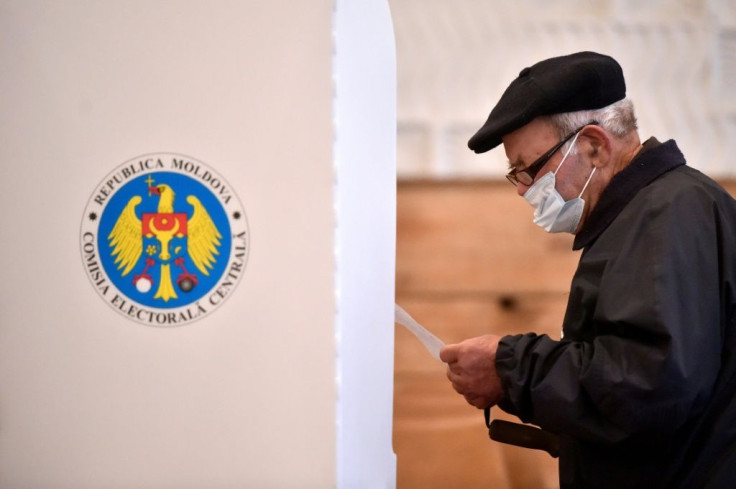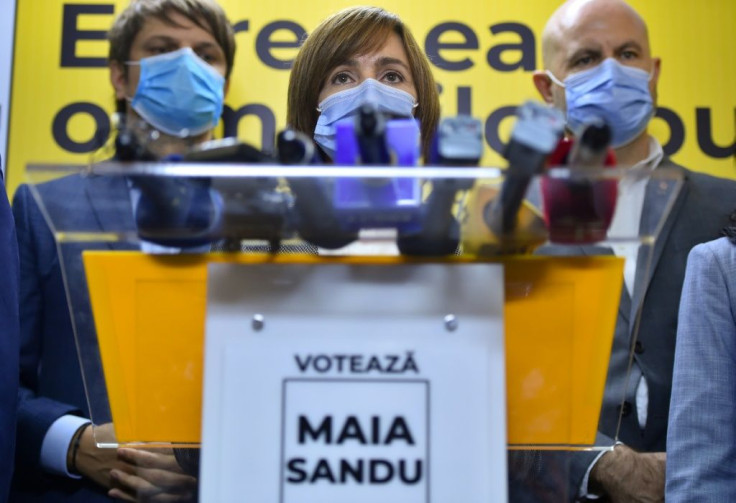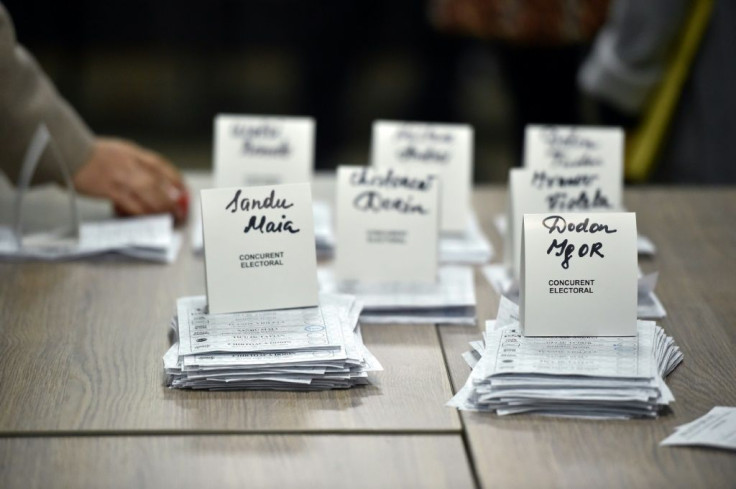Moldova's Pro-EU Presidential Hopeful Wins First Round Vote
Moldova's pro-European presidential hopeful Maia Sandu won a surprise first-round victory in elections at the weekend, a major setback for Moscow-backed incumbent Igor Dodon that suggests a tight second round later this month.
The small former Soviet country voted on Sunday under the watchful eye of Russia, which wants polarised Moldova to remain in its sphere of influence as several nearby Kremlin-aligned governments are rocked by political unrest.
Sandu, a 48-year-old centre-right politician who worked for the World Bank and briefly served as prime minister, won 36 percent of the vote against Dodon's 32 percent, the Central Elections Commission said Monday.
Voters "demonstrated that good can prevail," Sandu said in response to the results.

"We will have the chance to put Moldova on the right track and together build a functional state that works for its citizens," she said, looking ahead to the second-round vote on November 15.
Dodon said he was "convinced" of a repeat of the 2016 elections in which he won office by beating Sandu in the second round.
"We cannot allow the destabilisation of the country," he said, or "allow a puppet implementing the will of foreign forces to occupy the presidential office."
He also criticised the diaspora for backing Sandu and holding a vision for the country that he said went against "the main part of the population working in Moldova".

The OSCE election monitor, which sent around 40 observers to oversee voting, described the poll as "professionally organised" despite the coronavirus pandemic and "allegations of vote-buying".
"The campaign was competitive and fundamental freedoms of expression and assembly were generally respected," mission head Corien Jonker said at a press conference in Chisinau on Monday.

Dodon, who served as economy minister under a Communist government between 2006 and 2009, has pledged continued close ties with "strategic partner" Moscow and has said the Russian language should become compulsory in schools.
But "Dodon has paid the price for several corruption scandals, which have seriously damaged his image, and for the mismanagement of the health crisis caused by the pandemic," political analyst Denis Cenusa told AFP.
Analysts said the final results will be swayed by candidates knocked out of the race who will now throw their support to either Sandu or Dodon.
In third place was Renato Usatii, leader of Our Party, a populist anti-system group, followed by Violeta Ivanov of the Shor Party whose founder was sentenced in 2017 to nearly eight years in prison for money laundering.
Cenusa says their support could turn out to be a poisonous gift for Sandu.
"Flirting with these parties, whose leaders have been accused of various irregularities, could cost her votes within her own base," he said.
"Sandu will have to decide if she is ready to compromise her reputation of a person of integrity to attract voters from other candidates," he said.
Part of the Soviet Union until its collapse in 1991, the country lies between Ukraine and Romania, with which it has close historic ties, including a shared language.
Moldova has been rocked by multiple political crises and a $1-billion bank fraud scheme equivalent to nearly 15 percent of the country's annual output.
The impoverished country of 3.5 million has long been divided between those favouring closer ties with the EU and those who cling to Soviet-era relations with Moscow.
"For 30 years we have been waiting for change. How do you expect people who work abroad to come back as long as there is so much corruption here?" asked Vasile Mardare, a 64-year-old teacher.
"I voted for the candidate who will bring Moldova closer to the West's standard of living," he told AFP.
© Copyright AFP 2024. All rights reserved.




















